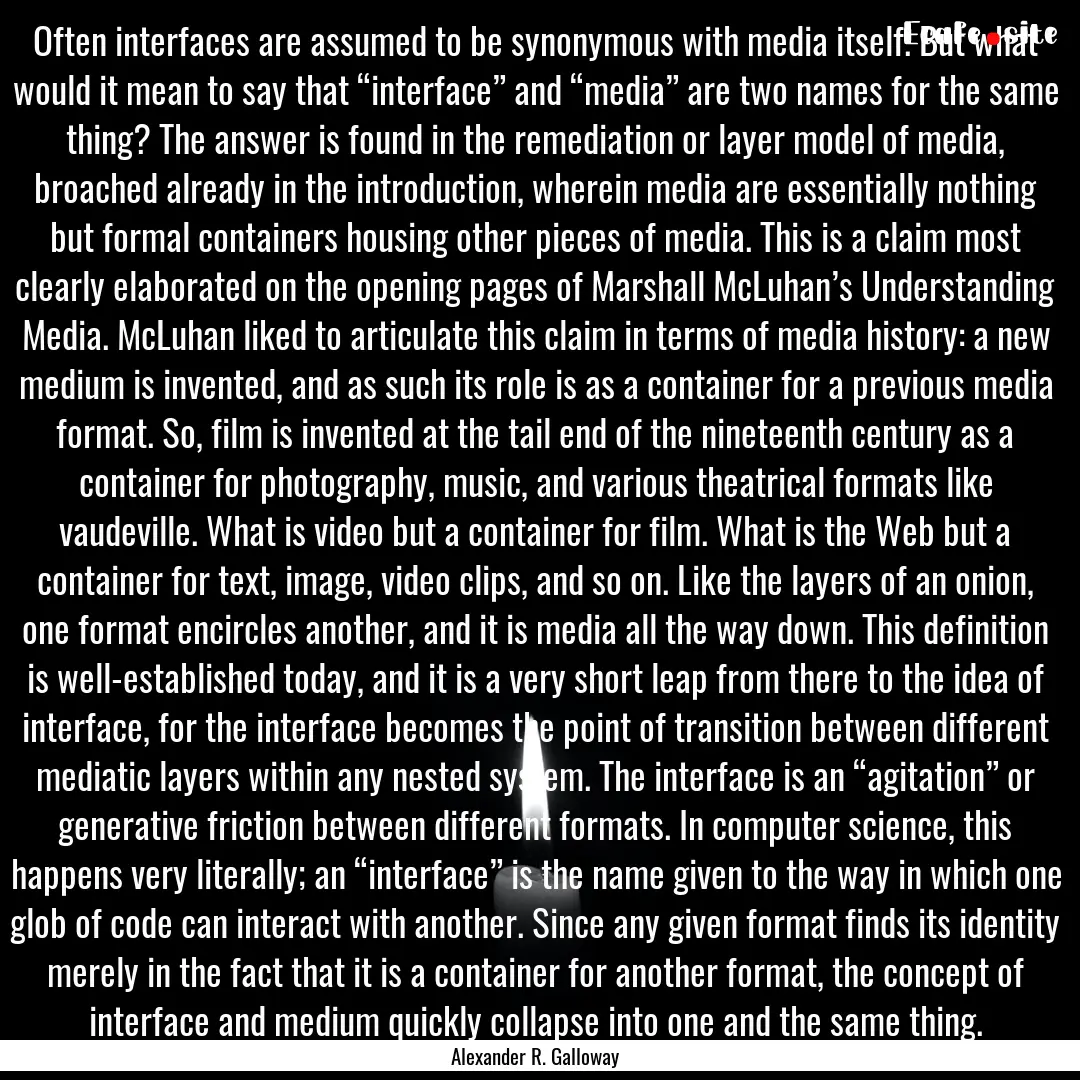
Report, if you have a problem with this page“ Often interfaces are assumed to be synonymous with media itself. But what would it mean to say that “interface” and “media” are two names for the same thing? The answer is found in the remediation or layer model of media, broached already in the introduction, wherein media are essentially nothing but formal containers housing other pieces of media. This is a claim most clearly elaborated on the opening pages of Marshall McLuhan’s Understanding Media. McLuhan liked to articulate this claim in terms of media history: a new medium is invented, and as such its role is as a container for a previous media format. So, film is invented at the tail end of the nineteenth century as a container for photography, music, and various theatrical formats like vaudeville. What is video but a container for film. What is the Web but a container for text, image, video clips, and so on. Like the layers of an onion, one format encircles another, and it is media all the way down. This definition is well-established today, and it is a very short leap from there to the idea of interface, for the interface becomes the point of transition between different mediatic layers within any nested system. The interface is an “agitation” or generative friction between different formats. In computer science, this happens very literally; an “interface” is the name given to the way in which one glob of code can interact with another. Since any given format finds its identity merely in the fact that it is a container for another format, the concept of interface and medium quickly collapse into one and the same thing. ”




